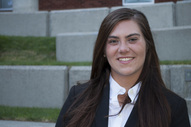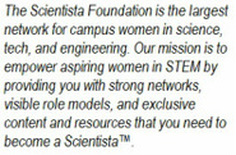Editor's Note: This piece is part of a series, Chronicles of a Premed Scientista. Follow blogger Chelsea Travers as she blogs about the experience of applying to medical school from start to finish. By Chelsea Travers To prelude this tale, there are some cautions to be aware of: 1) The MCAT is changing dramatically in 2015. 2) MCAT prep is a personal, spiritual journey and is different for each applicant. 3) I am legally bound to omit details of the exam I took and other testing material; however, I will describe what I did to prepare and supply advice. 4) I don’t know everything. There are three sections: physical, verbal and biological. Each is scored out of 15 points with an intimidating time limitation: 70 minutes for physical and biological with 52 questions each and 60 minutes for verbal with 40 questions. The writing section has been omitted and replaced with a tester section for the upcoming MCAT change. To prepare, I took a prep course through The Princeton Review (TPR). Talking with fellow pre-med students and researching on Student Doctor Network, I found that this company is better when it comes to matching the difficulty of the actual exam. For the last three months of my junior year, I sat at my computer from 9 am to 2:30 pm on Saturday and Sunday, and I set aside 10-12 hours for coursework during the week. Simultaneously, I made my school schedule as light as possible, while finishing up prerequisites. Here’s a good tip—finishing organic chemistry and/or physics right before taking the exam will reduce review material. I wish I had also taken a microbiology or biochemistry class preceding the exam. Throughout the review, my score plateaued; however, I spiked in score after the review was over. Despite this progress, I had to move my test date from May 11 to June 20. I do not recommend this, but if you’re not in the range of acceptance, a change must be made. I am not one of those people who studied for a month and placed in the 30s on their first practice test. Instead, I changed my approach to studying many times and improved gradually. My placement exams were in the low 20s. By the end of my training, I began to average a 27. This is a bare minimum for acceptance. However, my goal was to be above a 7 in each section. Statistically, one is less likely to get accepted with a 7 or less in any section. This is not a hard and fast rule. I know an applicant with an impressive GPA who scored a 29 with a 7 in verbal and got into all the osteopathic schools he applied to. Looking back, I feel that if I had concentrated my studies to three months using TPR material, without the instructors, I would have improved more rapidly and not been as burnt out by the end. There are generally two kinds of MCAT approaches when it comes to review: 1) the reader, who gains more from reading over material, and 2) the applier, who reviews better by diving into practice passages and working a variety of them. You could be one or both of them. Learning this early will aid in planning your study time efficiently. Additionally, learn what section(s) are your weakest and work on that one/those the most. I needed to focus on verbal and physical. As I got better at passage extrapolation in general, my other section scores went up. A friend once described MCAT prep as carrying a large pile of laundry up the stairs. You lose some socks or underwear along the way, but the goal is to keep the big items in your arms. There are main topics on the MCAT that appear on every test; if you master these topics, you will score relatively well. In my experience talking to pre-med students and MCAT tutors, timing was the sock or undergarment that made the difference. Reading quickly or having accurate, quick short-term memory makes MCAT prep exponentially easier. Practice was my key to developing these attributes. I once read that 20% of people who take the MCAT each year score in the 30s and above. When the average score of those accepted to medical school is 31, this may seem daunting. However, the application process is not entirely up to MCAT scores. Other links: From the people who advise people: http://studentdoctor.net/2009/05/medical-school-admission-lessons-learned/ 2015 Changes to MCAT: a) http://studentdoctor.net/2012/03/mcat-2015-changes-to-the-exam/ b) https://www.aamc.org/students/download/266006/data/2015previewguide.pdf c) http://www.youtube.com/playlist?list=PLdprizTzRD9nM_xEdJ49l76BeSSFpfRDg Studying for the MCAT: a) http://www.medaholic.com/how-to-self-study-for-the-mcat/ b) http://365rulesforpremeds.tumblr.com/post/3393805793 c) http://www.princetonreview.com/medical-school.aspx and/or www.kaptest.com/MCAT About the Blogger Chelsea Travers is a biology major and chemistry minor at Pacific Lutheran University in Tacoma, WA. Originally from Las Vegas, she has traveled from the desert to the rain in hopes to get closer to her dream of becoming a doctor. Comments? Leave them below!
1 Comment
9/20/2021 10:41:26 pm
Thanks for Sharing This Article. It is very so much valuable content. Keep posting.
Reply
Your comment will be posted after it is approved.
Leave a Reply. |
Education BlogAbout ScientistaSubscribe!NEW!New PostsWhat's HotClick to set custom HTML
You Might Like...
Connect With UsLatest tweets |
The Scientista Foundation, Inc. All Rights Reserved © 2011-2021 | Based in NY | [email protected]
The Network for Pre-Professional Women in Science and Engineering
The Scientista Foundation is a registered 501(c)(3) -- Donate!
The Network for Pre-Professional Women in Science and Engineering
The Scientista Foundation is a registered 501(c)(3) -- Donate!



 RSS Feed
RSS Feed









